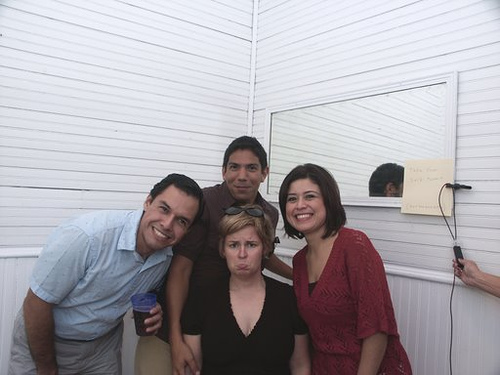In yesterday’s article (“The Best 40 Percent of Happiness”) I talked about the factors that the current research suggests go into determining how happy we are. About 50% seems to be genetic, 40% from attitude, and only 10% from our life situation.
But this flies in the face of what seems like common sense. After all, the things that cause the most worry and excitement in our lives-jobs, money, romance, new experiences, health, etc.-really do change. We might have a job we hate one year and a job we love the next; we fall in love or get married or split up; we get illnesses or lose weight. Why wouldn’t these make major, long-term changes in our level of happiness? In fact, there are several reasons they generally don’t:
Hedonic Adaptation: “I could get used to this”
Hedonic adaptation is the process we go through of getting used to pleasurable things so that they no longer provide as much bliss as when we first encountered them. The first bite of a really delicious meal or the first week of an incredible romance, tends to provide a lot of stimuli we really like, triggering pleasurable mental and physiological reactions. However, our brains are designed to get used to these stimuli so that the reactions gradually lessen. This seems cruel, but on the bright side it’s also true of stimuli we don’t like, which is why we gradually get used to bad smells, for instance.
So eating caviar every single day eventually will begin to feel about the same as eating oatmeal every single day.
So anything we do that’s pleasurable has a short-term effect unless it’s alternated with other different, pleasurable things. For instance, if you love France and move there, then over time France will likely feel less and less like something special and more and more like the same old neighborhood. But if you move to a new country you like every year (due presumably to being an international jewel thief or space shuttle salesperson or something), then you’ll continue to be engaged by the new places, sights, and sounds-though you might get exhausted after a while and start thinking about the attractions of a good old boring home, too.
There’s more to it than just the one thing
Another reason situations tend not to affect our long-term happiness in the ways we expect is that we tend to focus on just the single most obvious result of a big change. For instance, if you think about winning the lottery, probably the thing that keeps your attention is having a ton of money or being able to quitting your job. You probably won’t be thinking about having to spend more time with your annoying sister-in-law, about people asking you for handouts day after day, or about how bored you might get if you don’t have a structured thing to do, like a job. That’s not to say that the pleasure wouldn’t balance out the inconveniences, at least in the short term, but it does mean that any good thing that happens to us is unlikely to be 100% blissful.
And these factors work the same way on troubles: people with physical disabilities get used to them; people who suffer losses become accustomed to making do with whatever’s left over; and things that are very painful at first tend to become less painful in time.
Cultivating long-term happiness
Whatever the reasons, the research seems clear that attitude means a lot more than situation-even if cultivating a better attitude makes our situation worse. That’s not to say that we should give up and not do anything about our troubles, although it’s possible that’s a route to happiness for some people. Most of us will want to work on our situation and on our attitude.
The important thing to know about cultivating an attitude that creates happiness is that just as we tend to get used to new stimuli, we also tend to get used to anything that inspires us temporarily-so that just trying to have a new attitude is unlikely to produce long-term change because after a while we’ll stop being inspired to do it and go back to our old ways. What will produce long-term change is cultivating habits that change attitude. As these habits become part of our daily behavior, they make a durable and lasting impact on how we see and react to the world, digging out the happiness that’s available from the situations we’re already in.
Photo by keeping it real



